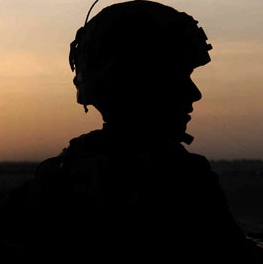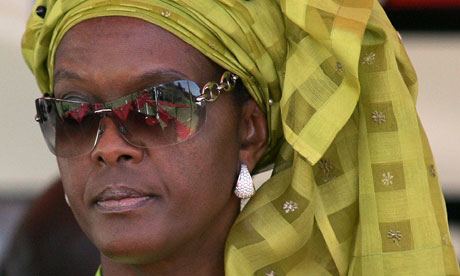In the past year there has been an influx of reports on a supposed “rape culture” within the United States military. Female soldiers have come forward in large numbers alleging that they experienced sexual harassment, assault, and even repeated rape at the hands of their male colleagues and superiors. The problem has reached such a magnitude that senior U.S. Army officials have likened sexual assault within the organization to “a cancer.”
These crimes are especially heinous considering the demographic represented by female enrollment to the U.S. military: young women fleeing unhappy homes or those without any other means of financing their education. In this sense, it seems that the male perpetrators of these sexual assaults are deliberately preying on the vulnerable, something diametrically opposed to the values that the U.S. Army purports to represent.
The Numbers
Not only is the number of military members assaulted high, but it has also increased from roughly 19, 000 sexual assaults in 2010 to 26, 000 in the past year. While this article focuses largely on the case of female victims, it is important to note that male victims are prominent as well, representing 56% of cases in 2010. These figures are an estimate that takes into account the fact that most victims fail to report the assaults. Thus, there is some hope to be found in the fact that the number of reported incidents has risen 6% in the past year (from 3, 200 to 3, 374). However, while the probability of a male soldier being sexually assaulted is roughly equal to that of a civilian male in the United States being sexually assaulted, the female case is rather different. Women in the military face a much higher risk of sexual assault than their civilian counterparts and more than one in four women who join the military will be sexually assaulted during their career. This indicates that there is still much ground to cover in improving the effectiveness of U.S. military sexual assault programs.
Cover-Ups, Inaction, and Victim Blaming
Sadly, in cases where these female victims have come forward to report their rapes, the standard response has been a combination of inaction, retaliation, and victim blaming. Some cases, such as that of former US Coast Guard Kori Cioca, have been particularly abhorrent. After Cioca was brutally beaten and raped by her commanding officer, her superiors told her that she would be court-martialed for lying. Her attacker received the relatively minor punishment of loss of pay and a month of base restriction. Cioca, in a tragic contrast, has been fighting the US Department of Defense ever since for the compensation needed to repair nerve damage to her face that she sustained in the attack.
Another common course of action has been for the female soldier to receive an “other than honourable discharge,” which prevents the victim from receiving benefits. As Myla Haider, a rape victim and former criminal investigator in the Army, succinctly put it, “When I reported [the rape] it was a very small part of my life. But by making that choice, my reporting of it took over my life, ruined my career and wound up, ultimately, getting me kicked out of the Army.” By failing to properly prosecute these sexual assaults, the military indirectly excuses them. The very fact that it has taken some women more than ten years to come forward and report these crimes is indicative of the depth of retaliation and victim blaming. This reluctance to come forward completes the feedback loop of poor prosecution of sexual assault crimes in the U.S. military.
[captionpix align=”left” theme=”elegant” width=”320″ imgsrc=”http://media1.policymic.com/site/articles/46479/2_photo.jpg” captiontext=”As this image demonstrates, an important critique of the military’s response to sexual assault in the forces is that women have been under-represented in meetings to address the issue.”]
A Way Forward
The Sexual Assault Prevention and Response Office (SAPRO) at the Department of Defense has been extremely vocal in asserting that“sexual assault […] has no place in the United States Armed Forces.” However, the recent arrest of the head of this program for the U.S. Air Force for sexual battery hit disturbingly close to the Pentagon and undermines the reputation of the program. This incident is also unfortunately not the first time officials tasked with preventing sexual assaults have been found guilty of perpetrating them. Another individual, a sergeant and director of a sexual assault program, was detained for multiple counts of sexual abuse and for organizing prostitution.
Ultimately, it seems that the problem with SAPRO lies not in its intention but rather in its oversight and accountability mechanisms. Congress seems to be taking the problem seriously, as Senator Kirsten Gillibrand has proposed new legislation that would alter the process by which these cases go to trial in the military justice system. The changes hinge on the removal of commanders from the decision process and could be an important step in ending the cycle of retaliation that has kept many victims from coming forward.
There needs to be a fundamental change of attitude within the U.S. military, a move away from what one survivor has called “a giant rape cult”. Maj. Gen. Gary Patton, head of SAPRO, has argued that in his years of service he has seen several ideological shifts in the military, particularly in terms of greater acceptance of other races and sexualities. As a result, he’s taken a stance that“changing attitudes toward sexual assault will be no different.” However, this kind of complacent attitude is highly ineffectual coming from the director of SAPRO and does little to increase public confidence in the organization’s capacity to enact meaningful change in the prevalence of sexual assault in the U.S. Army. How long must female soldiers wait to feel respected, valued, and safe in their workplace? As has often been seen throughout history, institutional measures, like those proposed by Sen. Gillibrand, often need to be taken to usher in ideological shifts.
Many senior members of the military argue that these changes would reduce the perceived authority of commanders. While this is an important consideration in maintaining discipline within the ranks, the magnitude of the problem at hand makes it clear that the military justice system needs a substantive overhaul. Plainly speaking, the system is failing to protect its members and is allowing grievous crimes to go unpunished. In terms of soldier morale, how can one expect an organization to function well when members lack confidence in the core mechanism of discipline that is the justice system? How can the military strive to promote peace and security when it so dismally fails to provide these very things for its soldiers?
Above all, the U.S. Military is based on a spirit of camaraderie, partnership, and togetherness. There is an idea that your fellow soldier has your back, so to speak. This spirit is completely violated by a pervasive culture of rape and sexual assault, particularly when these crimes go unpunished and victims pay the price. The U.S. military must provide adequate measures to ensure that both male and female soldiers are safe from sexual violence in their place of work. The current system is falling short of this basic human right and more drastic measures should be considered.




